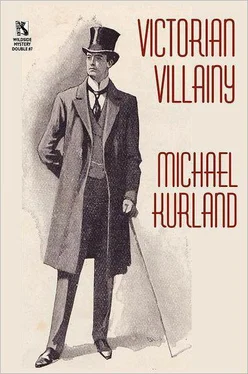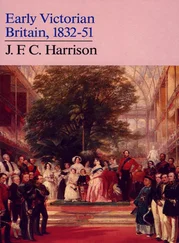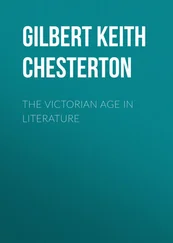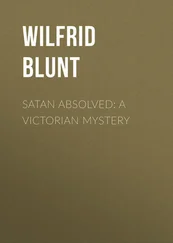Michael Kurland - Victorian Villainy
Здесь есть возможность читать онлайн «Michael Kurland - Victorian Villainy» весь текст электронной книги совершенно бесплатно (целиком полную версию без сокращений). В некоторых случаях можно слушать аудио, скачать через торрент в формате fb2 и присутствует краткое содержание. Жанр: Классический детектив, на английском языке. Описание произведения, (предисловие) а так же отзывы посетителей доступны на портале библиотеки ЛибКат.
- Название:Victorian Villainy
- Автор:
- Жанр:
- Год:неизвестен
- ISBN:нет данных
- Рейтинг книги:5 / 5. Голосов: 1
-
Избранное:Добавить в избранное
- Отзывы:
-
Ваша оценка:
- 100
- 1
- 2
- 3
- 4
- 5
Victorian Villainy: краткое содержание, описание и аннотация
Предлагаем к чтению аннотацию, описание, краткое содержание или предисловие (зависит от того, что написал сам автор книги «Victorian Villainy»). Если вы не нашли необходимую информацию о книге — напишите в комментариях, мы постараемся отыскать её.
Victorian Villainy — читать онлайн бесплатно полную книгу (весь текст) целиком
Ниже представлен текст книги, разбитый по страницам. Система сохранения места последней прочитанной страницы, позволяет с удобством читать онлайн бесплатно книгу «Victorian Villainy», без необходимости каждый раз заново искать на чём Вы остановились. Поставьте закладку, и сможете в любой момент перейти на страницу, на которой закончили чтение.
Интервал:
Закладка:
“I’ll say,” Lenora agreed. “Why I could tell you-” She smiled. “But I won’t. Except about poor Vincent, which is why you’re here.”
“Indeed,” Moriarty agreed. “So Vincent saw his prowess as necessary to his health?”
“That he did. About three weeks ago, when for a couple of nights he couldn’t-perform-he went into a sulk like you’ve never seen. I tried cheering him up, told him he was just overtired, or ill, and would be up to snuff in no time.”
“How did he take to your cheering words?” Moriarty asked.
“He threw a fit. I thought he had gone crazy. He broke everything in the house that could be lifted, and some that couldn’t. He knocked me down, but that was an accident. I got between him and something he was trying to break. When everything was broken, he collapsed on the floor. The next morning when he left he seemed quite normal, as if nothing had happened. That afternoon a team of men from Briggs and Mendel came to repair the damage and replace the furniture and crockery.”
“And how was he after that?”
“I only saw him a couple of times after that. Once he came to the flat, and once he sent a carriage for me to join him at the Paradol Club. There’s an inconspicuous door around the side for the special friends of the members. He was unusually silent, but he had recovered from his trouble, whatever it was. He proved that.”
“Did you notice any peculiar bruises on his body when you saw him?”
“Bruises? Why, yes. On his neck. Two bright red marks, almost opposite each other. I asked him about them, and he laughed and said something about Shelley.”
“Shelley?” I asked. “The poet?”
“I suppose. He said something about an homage to Shelley, and then for a long time we didn’t speak. And then I left, and that was the last time I saw him.”
“I see you’re heavily influenced by the French school,” Moriarty said.
“Excuse me?”
“Your art.” Moriarty gestured toward the paintings. “You’re quite good.”
“Oh. Thank you.”
“Will you sell me one?”
“Will I-you don’t have to-”
”I want to. I’ll tell you what; there’s a gentleman who owns an art gallery in the Strand who owes me a favor. I’ll send him down to see you, look at your work.”
“That would be very kind.”
“Nonsense. After he’s seen your stuff he’ll owe me two favors. We’ll have to make up some tale about your past, London society is not ready for a harlot artist. It’s barely ready for a woman artist. You won’t make as much money as men who only paint half as well, but it’ll be better than you’re doing now.”
Lenore had the wide-eyed look of a poor little girl at the pastry counter. “I don’t know what to say,” she said.
“Say nothing until it happens,” Moriarty said. “And I’ll be back next week to pick out a painting for myself.”
“Whichever you want, it’s yours,” Lenore said.
“We’ll let Vincent’s brother pay for it,” Moriarty said. It’s only fitting.” He took her hand. “It’s been a pleasure meeting you,” he said. “You’ve been a great help.”
We exited to the street, leaving behind a pleased Miss Lestrelle. “Moriarty,” I said, putting my collar up against the light drizzle that had begun while we were inside, “you shouldn’t do that.”
“What?”
“You know perfectly well what. Raising that girl’s hopes like that. I got a good look at her paintings and they were nothing but blobs of color splattered on the canvas. Why, from close up you almost couldn’t tell what the pictures represented.”
Moriarty laughed. “Barnett,” he said, “you are a fixed point of light in an otherwise hazy world. Just trust me that Van Delding will not consider himself ill used to look at those canvases. The world of art has progressed in the last few decades, along with practically everything else. And we are going to have to accustom ourselves to even more rapid changes in the future.”
“I hope you’re wrong,” I told him. “Few of the changes that I’ve observed over the last quarter-century have been for the better.”
“Change is the natural condition of life,” Moriarty said. “Stones do not change of themselves.” He hailed a passing hansom cab and gave our address to the driver. “Well, Barnett,” he said as we started off, “what do you think?”
“I think I’ve missed my lunch,” I said.
“True,” he admitted. “I get rather single-minded when I’m concentrating on a problem.” He knocked on the roof and shouted to the driver to change our destination to the Savoy.
“I don’t see as we’re any further along with discovering how Lord tams met his death,” I told him. “We’ve learned a lot about the character and habits of the deceased earl, but it doesn’t seem to have gotten us any closer to the way he died.”
Moriarty glanced at me. “Scientists must train themselves to use rational deductive processes in solving whatever problems come their way, whether they involve distant galaxies or sordid crimes in Belgravia,” he said. “And the deductive process begins with the collection of data. Only after we have all the facts can we separate the dross from the gold.”
“Of course, Moriarty,” I said. “And what of this case? You must have some facts that are relevant to the problem at hand on which to set those rational processes to work. Lord Vincent Tams may have been a sexual glutton, but I fail to see how a knowledge of his grosser appetites of the flesh will advance our knowledge of how he died.”
“Grosser appetites of the flesh?” Moriarty said. “Very good, Barnett; you outdo yourself. If you reflect on what we have learned these past few hours, you will realize that our time has not entirely been wasted.”
“I am not aware that we have learned anything of value,” I said.
Moriarty considered for a moment. “We have learned that the defunct earl spoke of Shelley,” he said, “and that by itself should tell us all. But we have learned more: We have learned that artistic talent can flower in the most unlikely places.”
“Flower!” I said. “Pah!”
Moriarty looked at me. “Who, for example, would suspect that such fine writing talent could emerge from a quondam reporter for the New York World?”
“Pah!” I repeated.
I had some errands which occupied me after lunch, and Moriarty was out when I returned to Russell Square. I dined alone, and was catching up on filing some accumulated newspaper clippings when the door to the study was flung open and a tall man with a scraggly beard, a dark, well-patched overcoat, and a blue cap strode in. Convinced that I was being accosted by a dangerous anarchist, I rose, trying to remember where I had put my revolver.
“Ah, Barnett,” the anarchist said in the most familiar voice I know, “I hope there is some dinner left. I have been forced to drink more than I should of a variety of vile liquors, and I didn’t trust the food.”
“Moriarty!” I exclaimed. “I will ring for cook to prepare something at once. Where have you been?”
“Patience,” Moriarty said, taking off his long gaberdine overcoat. He pulled off the beard and reached into his mouth to remove two gutta-percha pads from his cheeks. Then a few quick swipes over his face with a damp sponge, and he was once again recognizable. “Food first, and perhaps a cup of coffee. Then I’ll tell you of my adventures.”
I rang and told the girl to have cook prepare a tray for the professor, and she returned with it inside of five minutes. Moriarty ate rapidly, seemingly unaware of what he was eating, his eyes fixed on the far wall. I had seen these symptoms before. He was working out some problem, and I knew better than to interrupt. If it was a difficult one he might spend hours, or even days, with a pencil and note-pad in front of him, drinking countless cups of coffee and consuming quantities of the rough-cut Virginia tobacco he favored in one of his briar pipes, and staring off into space before he again became conscious of his surroundings.
Читать дальшеИнтервал:
Закладка:
Похожие книги на «Victorian Villainy»
Представляем Вашему вниманию похожие книги на «Victorian Villainy» списком для выбора. Мы отобрали схожую по названию и смыслу литературу в надежде предоставить читателям больше вариантов отыскать новые, интересные, ещё непрочитанные произведения.
Обсуждение, отзывы о книге «Victorian Villainy» и просто собственные мнения читателей. Оставьте ваши комментарии, напишите, что Вы думаете о произведении, его смысле или главных героях. Укажите что конкретно понравилось, а что нет, и почему Вы так считаете.










![Brian Thompson - A Monkey Among Crocodiles - The Life, Loves and Lawsuits of Mrs Georgina Weldon – a disastrous Victorian [Text only]](/books/704922/brian-thompson-a-monkey-among-crocodiles-the-life-thumb.webp)

